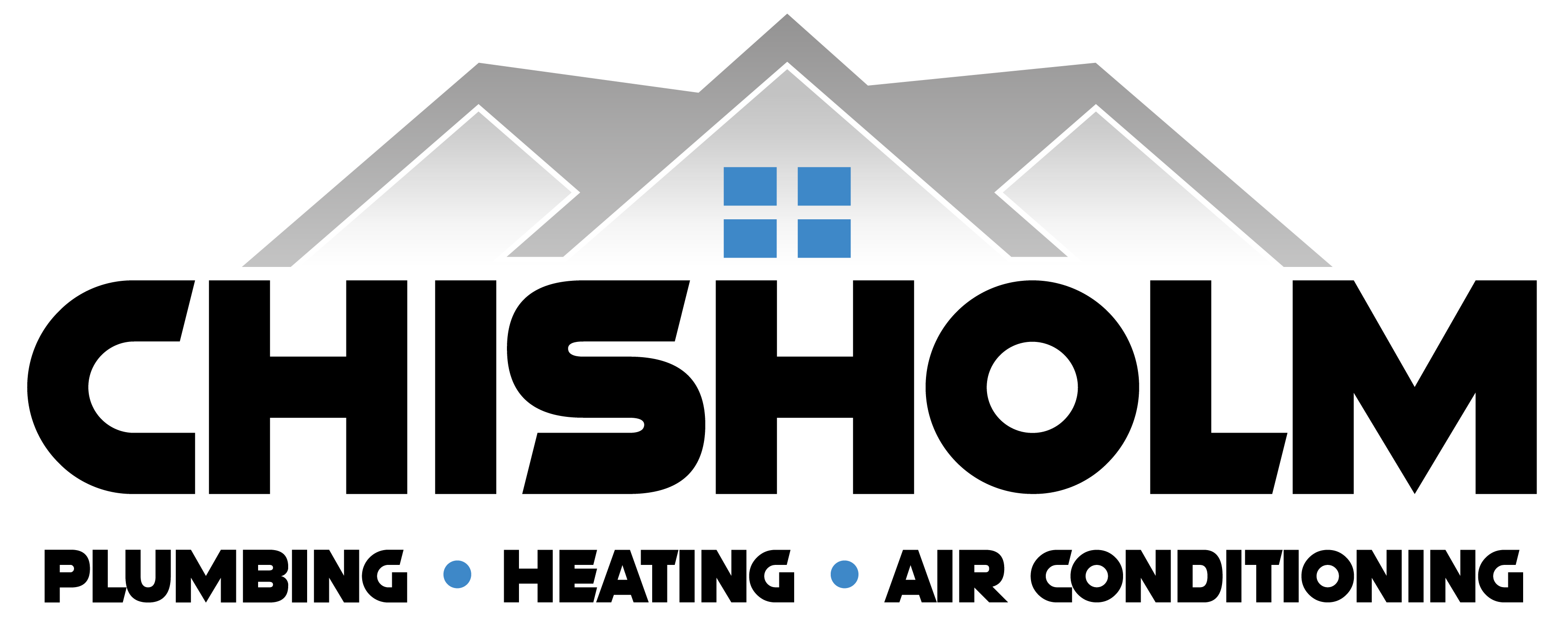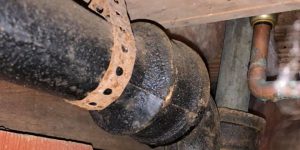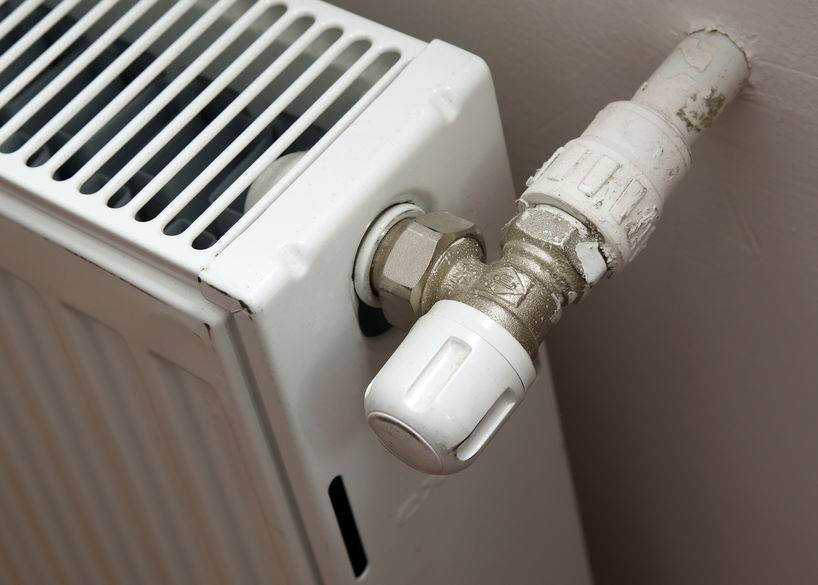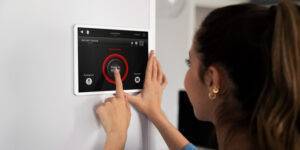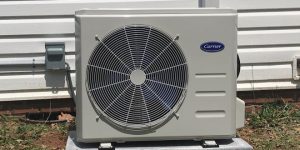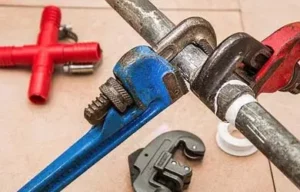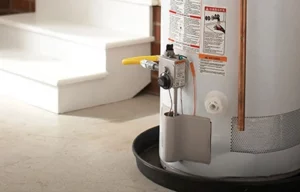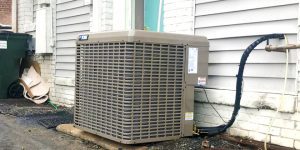
Hurricane Helene swept through the Greer area, leaving significant damage in its wake. While many homeowners focus on visible repairs, such as fixing roofs and siding, one critical area that may have been affected is your heating system. Even if your system appears to be functioning, hidden damage may exist that could lead to costly issues when winter arrives. In this blog, we’ll cover how your heating system might have been impacted by Hurricane Helene, warning signs to look for, and essential steps you should take before the cold season to ensure your home stays warm and safe.
Table of Contents
| Section | Overview |
| How Hurricane Helene Might Have Impacted Your Heating System | Examines potential issues like water damage, power surges, and debris buildup in your heating system. |
| Common Signs of Storm Damage to Your Heating System | Describes symptoms like strange noises, water leaks, or inefficiency, which indicate hidden storm damage. |
| Steps to Take Before Winter to Ensure Safe Heating | Detailed recommendations for inspecting and maintaining your heating system in preparation for the cold. |
| Heating System Data: Storm Damage vs. Regular Maintenance | Comparison data on how storm damage affects your system versus the benefits of regular upkeep. |
| FAQ: Do You Need Heating System Repair or Replacement? | Answers to common questions about identifying and addressing storm-related heating issues. |
| How Chisholm Can Help You Prepare for Winter | Outlines how Chisholm’s heating services can assist in getting your home ready for the winter. |
Glossary of Terms
- HVAC: Heating, Ventilation, and Air Conditioning system that regulates indoor air quality, temperature, and humidity.
- Heat Exchanger: The part of your furnace that heats the air before it circulates throughout your home.
- Blower Motor: The component that distributes warm air through your house.
- Thermostat: A device that monitors and regulates your home’s temperature by controlling the heating system.
- Flood Damage: Any damage caused by flooding or excessive water, which can severely impact electrical or mechanical systems in your heating unit.
How Hurricane Helene Might Have Impacted Your Heating System
While many are focused on repairing visible damage after Hurricane Helene, the storm may have left hidden effects on your home’s heating system. Flooding, high winds, and power outages can severely compromise the functionality of HVAC units in several ways:
- Water and Flood Damage
If your furnace or heat pump is installed in a basement or low-lying area, it’s highly vulnerable to flooding. Water can infiltrate critical components like the blower motor, heat exchanger, or electrical circuitry, causing rust, corrosion, or short circuits. These effects may not be immediately noticeable, but they can degrade system performance and increase the risk of breakdowns over time. - Debris and Blockages
High winds during a storm can blow debris into outdoor units or vent systems. This debris might block airflow, leading to overheating, reduced efficiency, or even system failure. Blocked filters or obstructed ducts mean your heating system will work harder, potentially leading to higher energy costs and faster wear on components. - Electrical Surges and Power Outages
Power surges, common during storms, can damage your heating system’s control boards, thermostats, and other sensitive electronics. This might result in your system running erratically or failing to start altogether. If you experienced power outages during Hurricane Helene, it’s worth having your system checked to ensure no components were damaged.
Common Signs of Storm Damage to Your Heating System
While your heating system may appear to be running, it could have hidden issues that may cause trouble later. Here are some warning signs that your heating system might have been affected by the storm:
- Unusual Noises: If your heating system makes grinding, clanging, or whistling noises after the storm, it could indicate debris in the system, loose parts, or damaged internal components.
- Inconsistent Heating: Uneven heating throughout your home may be a sign of blocked vents, damaged ductwork, or a malfunctioning thermostat.
- Higher Utility Bills: If you’ve noticed a spike in your energy bills, your system could be working harder than necessary due to storm-related blockages or damage.
- Water Leakage Around Your Unit: Water pooling near your furnace or heat pump, or condensation on the system, is a clear sign of water damage that needs to be addressed.
- Frequent Cycling: If your heating system turns on and off more frequently than normal (a process called short cycling), it might be due to electrical damage or a malfunctioning thermostat, often caused by power surges.
Each of these signs can indicate a deeper problem, so it’s important not to ignore them. Storm-related issues might worsen if left unattended, leading to more costly repairs or even complete system failure during the coldest months of the year.
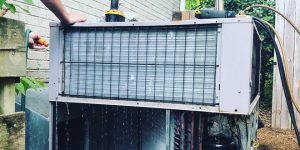
Steps to Take Before Winter to Ensure Safe Heating
If your heating system has been exposed to the harsh conditions of Hurricane Helene, taking preventative measures now is critical to avoid larger problems when winter hits. Here are some steps you should take to ensure your system is functioning safely and efficiently:
- Schedule a Professional Inspection
After a major storm like Helene, it’s a good idea to have your system thoroughly inspected by a professional. An HVAC technician can spot issues that aren’t visible to the untrained eye, such as internal corrosion or electrical problems. At Chisholm Plumbing, Heating & Air Conditioning, we offer comprehensive heating repair services that can address any damage before winter hits. - Check for Water Damage
Water damage is one of the most common issues after a storm. Inspect the area around your furnace or heat pump for signs of water exposure, such as rust, pooling water, or unusual odors. If your system was submerged in floodwater, it might need a complete replacement, as water damage can lead to long-term safety issues. - Change or Clean Air Filters
Your system’s air filters can easily become clogged with dust and debris blown in by high winds. A clogged filter reduces airflow, making your system work harder and potentially causing it to overheat. Replacing or cleaning filters is an easy yet crucial step in keeping your system running smoothly. - Test Your Thermostat
Power surges can damage your thermostat, causing it to malfunction or read temperatures inaccurately. If you notice your home isn’t staying as warm as it should be, or if the thermostat seems to be acting erratically, it might be time to have it inspected or replaced. - Consider Upgrading to a New System
If your system is older or sustained significant damage from the storm, it may be more cost-effective to replace it rather than continue repairing it. Newer systems are not only more efficient but also better equipped to handle severe weather conditions. At Chisholm, we provide heating installation and replacement services to ensure your home stays warm, no matter what.
Heating System Data: Storm Damage vs. Regular Maintenance
| Aspect | Storm Damage Impact | Regular Maintenance Benefit |
| System Efficiency | Decreased due to blocked filters, water damage, or power surges. | Optimal efficiency through consistent cleaning and upkeep. |
| Component Lifespan | Shortened by corrosion, debris, and electrical damage. | Extended lifespan by catching issues early and reducing strain. |
| Energy Costs | Higher due to system overworking to compensate for blockages or damage. | Lower, as a well-maintained system uses less energy. |
| Repair Costs | Higher if storm-related issues are left unresolved, leading to major repairs. | Minimal, as preventative maintenance reduces the need for costly repairs. |
| Safety | Greater risk of hazards like electrical shorts or carbon monoxide leaks. | Safer operation due to regular inspections and system tune-ups. |
Regular maintenance can save homeowners hundreds of dollars in energy and repair costs, but storm damage left unchecked can lead to significantly higher bills, both in terms of repairs and energy consumption.
FAQ: Do You Need Heating System Repair or Replacement?
- How can I tell if my heating system was affected by Hurricane Helene?
Look for signs such as unusual noises, water pooling around the unit, or a sudden increase in energy bills. If your heating system isn’t functioning as efficiently as before, it may have suffered storm-related damage. - What should I do if my furnace was flooded?
If your furnace or heat pump was exposed to floodwaters, it’s important to turn it off and have it inspected by a professional immediately. Flood damage can lead to electrical hazards and significant damage to internal components. - Can I continue using my heating system if it’s showing minor issues after the storm?
Even minor issues, like inconsistent heating or frequent cycling, can indicate underlying problems that may worsen over time. It’s best to have these symptoms inspected and addressed before they lead to bigger failures in the middle of winter. - Should I repair or replace my system if it’s old and damaged by the storm?
If your heating system is more than 10-15 years old and has sustained storm damage, replacement may be the more cost-effective option. Newer systems offer better energy efficiency and are more resilient to extreme weather. - How often should I schedule maintenance for my heating system after
a storm?
Regular annual maintenance is crucial, but after a severe storm like Hurricane Helene, an additional inspection is recommended to ensure there’s no hidden damage.
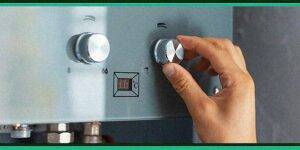
How Chisholm Can Help You Prepare for Winter
Hurricane Helene has left many homes in Greer at risk, and ensuring your heating system is in good working order is essential as winter approaches. The team at Chisholm Plumbing, Heating & Air Conditioning is here to help you with thorough inspections, repairs, and replacements to guarantee your home remains warm and safe during the colder months.
If you’re concerned about your heating system after the storm, contact us today. Our experts will evaluate your system, make any necessary repairs, or help you choose a new, energy-efficient model to keep your family comfortable all winter long.
